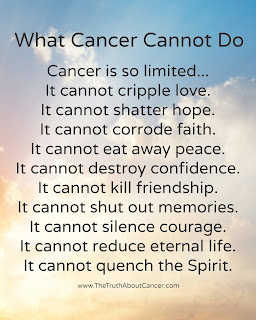Breast cancer survivor tries to make rational choices based on newer genetic testing results.
BY Barbara Tako
PUBLISHED January 15, 2018
Barbara Tako is a breast cancer survivor (2010), melanoma survivor (2014) and author of Cancer Survivorship Coping Tools–We'll Get You Through This. She is a cancer coping advocate, speaker and published writer for television, radio and other venues across the country. She lives, survives, and thrives in Minnesota with her husband, children and dog. See more at www.cancersurvivorshipcopingtools.com,or www.clutterclearingchoices.com.
Do I seem preoccupied? Here is why. When I first got breast cancer seven years ago, I was reassured that I had a "garden variety" of breast cancer "caught early" on a routine mammogram. When or if you discover you have cancer, you quickly learn to hope that it is the "routine" kind of cancer that "they" (the doctors) know how to treat.
Now enter ever-expanding genetic testing. It is like being thrown a curve ball. Or maybe it is more like trying to hit a baseball in the dark or ski on a slope on a cloudy gray day that makes the ground appear flat when it really is not.
My "garden variety" of breast cancer now turns out to be the "rare" PALB2 genetic abnormality. Not to mention, my mom recently passed away in her 80s from metastatic breast cancer. The geneticist recommended letting others in my family know about my mutation for their own health. For me, she recommended monitoring every six months or considering a prophylactic double mastectomy. My choice is to have a double prophylactic mastectomy. It feels like a strange situation to find myself in, seven years after beating breast cancer once already. Nothing has changed except my knowledge – a 15 percent chance of recurrence may actually be a 30 to 60 percent chance in my particular case.
Now enter ever-expanding genetic testing. It is like being thrown a curve ball. Or maybe it is more like trying to hit a baseball in the dark or ski on a slope on a cloudy gray day that makes the ground appear flat when it really is not.
My "garden variety" of breast cancer now turns out to be the "rare" PALB2 genetic abnormality. Not to mention, my mom recently passed away in her 80s from metastatic breast cancer. The geneticist recommended letting others in my family know about my mutation for their own health. For me, she recommended monitoring every six months or considering a prophylactic double mastectomy. My choice is to have a double prophylactic mastectomy. It feels like a strange situation to find myself in, seven years after beating breast cancer once already. Nothing has changed except my knowledge – a 15 percent chance of recurrence may actually be a 30 to 60 percent chance in my particular case.

No comments:
Post a Comment